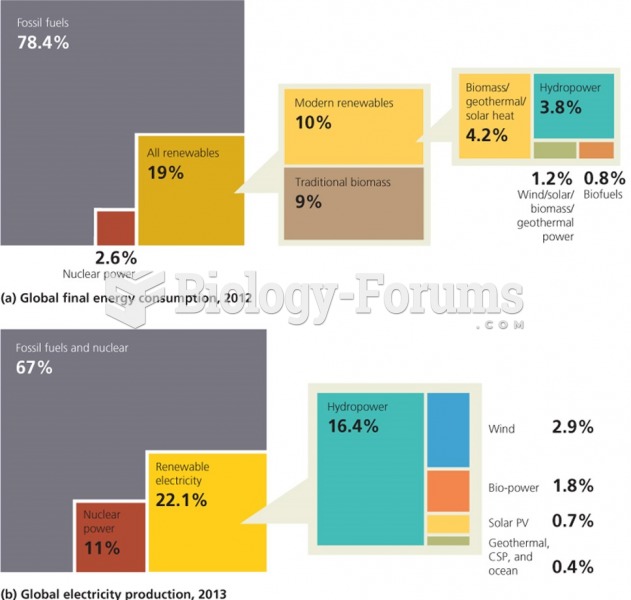|
|
|
Although not all of the following muscle groups are commonly used, intramuscular injections may be given into the abdominals, biceps, calves, deltoids, gluteals, laterals, pectorals, quadriceps, trapezoids, and triceps.
Of the estimated 2 million heroin users in the United States, 600,000–800,000 are considered hardcore addicts. Heroin addiction is considered to be one of the hardest addictions to recover from.
Approximately 500,000 babies are born each year in the United States to teenage mothers.
In the ancient and medieval periods, dysentery killed about ? of all babies before they reach 12 months of age. The disease was transferred through contaminated drinking water, because there was no way to adequately dispose of sewage, which contaminated the water.
The top 10 most important tips that will help you grow old gracefully include (1) quit smoking, (2) keep your weight down, (3) take supplements, (4) skip a meal each day or fast 1 day per week, (5) get a pet, (6) get medical help for chronic pain, (7) walk regularly, (8) reduce arguments, (9) put live plants in your living space, and (10) do some weight training.
 Pulse oximetry with the sensor probe applied securely, flush with skin, making sure that both sensor
Pulse oximetry with the sensor probe applied securely, flush with skin, making sure that both sensor
 This debutante is making her formal entrance into society, announcing her eligibility for marriage. ...
This debutante is making her formal entrance into society, announcing her eligibility for marriage. ...





